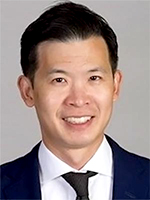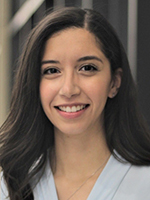
The Coastal Program for Rare Inflammatory Diseases’ expanding network of experts are leading cutting-edge research on drugs for orphan diseases.
A new Coastal Program for Rare Inflammatory Diseases (Coastal Program) at Vancouver Coastal Health is establishing a network of experts to help patients in desperate need of an effective medication to treat their conditions. Led by Vancouver Coastal Health Research Institute researcher Dr. Luke Chen, the Coastal Program is part of a broader movement to find cures to the approximately 6,000-8,000 rare diseases around the world.
“Every week, I receive numerous phone calls and emails from physicians across Canada and internationally about patients with rare diseases,” shares Chen. “Often, physicians and their patients feel that they are alone in struggling with a disease that, in fact, is very familiar to me or my collaborators.”
"No patient or physician should have to face managing a rare disease on their own.”
In Canada and the European Union, a rare disease is defined as a disease that affects fewer than one in 2,000 people. Although each rare disease affects a small number of people, in aggregate, rare diseases are a large public health issue. An estimated one in 12 Canadians — over 3.4 million individuals — are living with a rare disease.
Several ongoing barriers make finding cures to orphan diseases — diseases that are not the focus of ongoing research, including rare diseases — more difficult, explains Chen. The drug discovery process requires millions of dollars and, more often than not, over 10 years from initial investigations to clinical trials and a Health Canada-approved medication. Involving a small patient population, the investment case, as well as recruiting research participants, for rare diseases is an uphill battle.

The process of drug repurposing — treating a patient using an existing medication for a purpose other than its initial intent — can shorten the time frame and substantially reduce costs, explains Chen. “While two diseases may appear outwardly different in terms of symptoms or diagnosis, they could both share a common genetic mutation or molecular pathway that can be treated with the same medication. We just need to discover what that medication might be.”
Driving collaboration and expertise to find cures to rare diseases

The Coastal Program works closely with the US-based Every Cure organisation, with which Chen is a member of the scientific advisory board, sending Every Cure medication repurposing ideas to interrogate with a powerful artificial intelligence (AI) algorithm. Using an approach called computational pharmacophenomics, Every Cure’s AI makes novel predictions on how approved pharmaceuticals could be applied to treat the mechanisms underpinning rare diseases. Results are shared with the Coastal Program, which may then proceed with further research into repurposing the medication to treat patients.
A second pillar of the Coastal Program is to expand its network of interdisciplinary collaborators from other research and clinical centres, including physicians, pharmacists, hematologists and pathologists. A third pillar is working toward improved diagnostic testing.
“The accurate diagnosis of many of the rare diseases that cross my desk can require simple modifications to existing laboratory tests or adjustments to how we analyse the data.”
For example, Dr. Mariam Goubran, the Coastal Program’s inaugural Rare Inflammatory Diseases Fellow, has worked with Chen on interventions to improve diagnostics for cytokine storms — a severe immune reaction that captured headlines during the COVID-19 pandemic. This research has demonstrated that simple, widely available laboratory tests can be useful for distinguishing between cytokine storm syndromes.

As part of the fourth pillar, the Coastal Program is training the next generation of physicians with an interest in identifying novel pharmaceutical interventions for people with rare diseases. Chen presently supervises several medical students and trainees at the University of British Columbia (UBC), including Dr. Emily Leung, whose research has investigated repurposing medications to treat Rosai-Dorfman-Destombes disease: a rare and potentially fatal histiocyte immune cell disorder.

“The best part of this job is being able to teach and mentor some of the best and brightest students and resident physicians in Canada,” says Chen. “My goal is always for my students and trainees to become better physicians than I am.”
Chen’s research with Every Cure — recently published in the New England Journal of Medicine — led to the discovery that the medication, adalimumab, was effective at inhibiting a protein driving the rare and formerly untreatable idiopathic multicentric Castleman disease (iMCD). “Patients with iMCD can experience inflammation and swelling not only in their lymph nodes, but throughout their bodies, which can lead to multi-organ failure and potentially death,” explains Goubran.
While adalimumab is Health Canada-approved for the treatment of arthritis, colitis and Crohn’s disease, among others, it had not been approved for use on iMCD.
“The patient with iMCD who received adalimumab through our research study remains in remission since February 2023,” Chen relays. “This is a perfect example of the life-saving breakthroughs that are possible with ongoing research, innovation and cross-institutional collaboration.”


